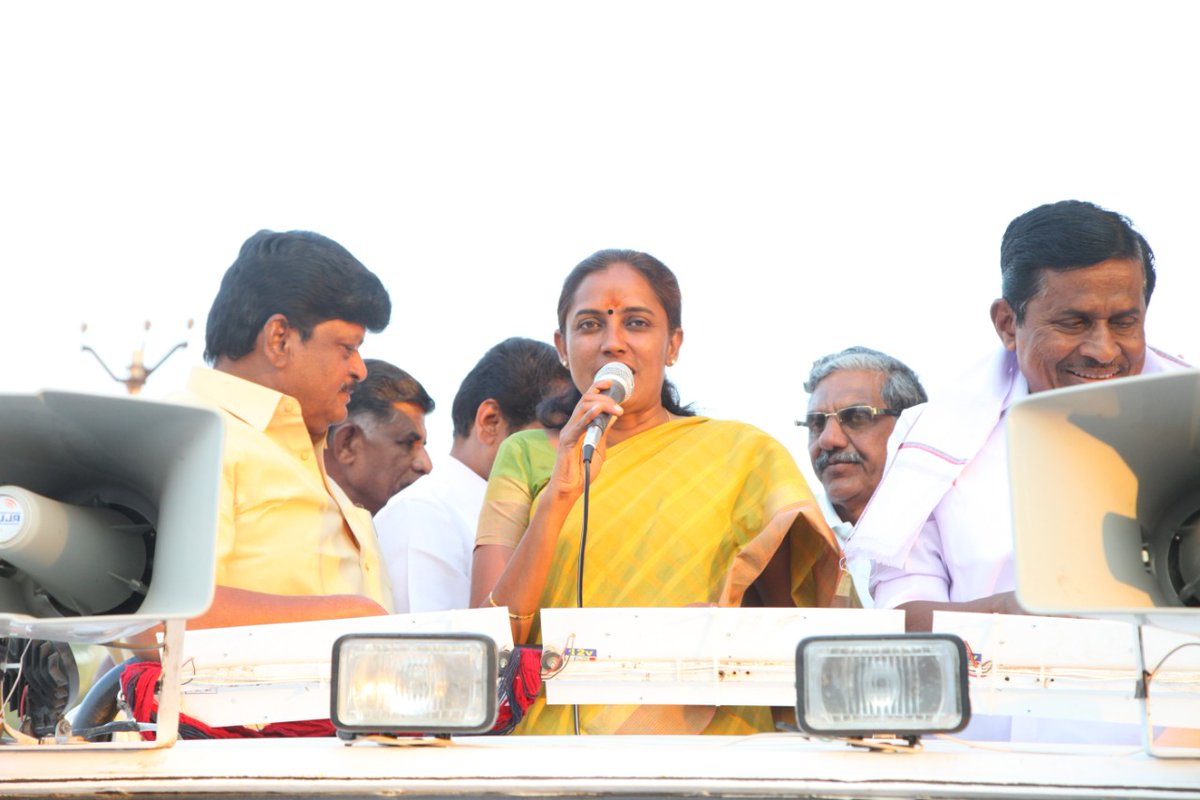
How a village girl won the hearts of dalits in her constituency

The road to Periya Thirumangalam looks new but no buses take the route. It has been five years since government buses and private mini-buses stopped services to the area. Now, one needs to take an omni van from Thennilai for ₹250 to reach the small village in Karur district of Tamil Nadu.
“The government should provide us with transport services instead of thinking of profits. They stopped the service saying there were not enough passengers travelling on the route and that there was insufficient collection,” said Subramani, an omni driver, adding, “Hope this changes once Jothimani akka is elected,” he added.
Jothimani Sennimalai, 43, is a rarity of sorts in Tamil Nadu politics. With no family background in politics, she has ventured into the rough and tumble, and worked to create a space for herself in the Congress party. She has faced many challenges from men in her party and outside but stood steadfast in her commitment. Today, she offers hope for Karur voters.
Jothimani contested from Karur in the 2011 Assembly election and the 2014 Lok Sabha election, losing both times to the AIADMK candidate. However, none of that stopped her from running for the parliamentary election this year. Things might be looking up for her as the people of Karur are dissatisfied with sitting MP and Lok Sabha deputy speaker Thambidurai. Moreover, Senthil Balaji, former transport minister who was expelled from the AIADMK, has joined the DMK and is supporting Jothimani.
Jothimani was born to a farmer, who died when she was a child. At a time when continuing studies after school was frowned upon, Jothimani’s mother supported her when she pursued higher education.
In 1996, at the age of 22, when youth her age cast their votes for the first time, Jothimani was already a councillor for K Paramathi panchayat union. She served in the position for two terms between 1996 and 2006. With belief in Rajiv Gandhi’s Panchayat Raj, she had joined the Congress, and the party fielded her from the panchayat union. Being from the Vellalar community, she bagged many Kongu Vellalar votes.
As a councillor, one of her feats was to bring drinking water to Madharivalavu, a dalit colony. For many years, dalits in the colony did not have access to drinking water and used a common well. Over time, the well dried out, and they were forced to draw water from a well situated in an upper caste-dominated locality. When people came to know of this, animosity began brewing between the two communities. Soon, people from both communities clashed over water. Though the dalits initially retaliated, they later surrendered.
For the next 10 to 15 years, the colony survived without a water pipeline. Jothimani, during her campaign, promised that she would bring a permanent water connection to Madharivalavu. But she was met with not only political opposition but also from her family. The resistance to her promise made her realise that that people belonging to upper castes were unable to digest the fact that the dalits were going to have a separate pipeline. ‘Caste has its shadow even in drinking water’, she writes in her book ‘Neer Pirakkum Mun’.
However, she succeeded in giving the dalit colony a separate water connection, and as a result, also developed a bond with its residents.
Twenty years have gone by, but the pipeline stands the test of time. The lack of rainfall and the prevalence of drought have reduced the water in the pipeline to a trickle. And Jothimani says she will continue her fight for the same cause: water.

